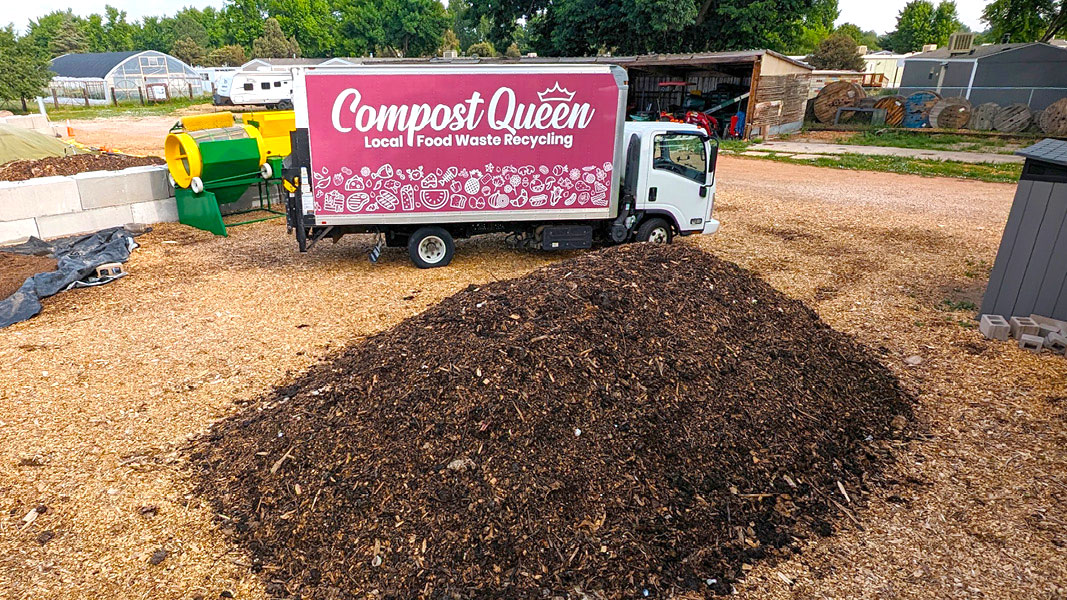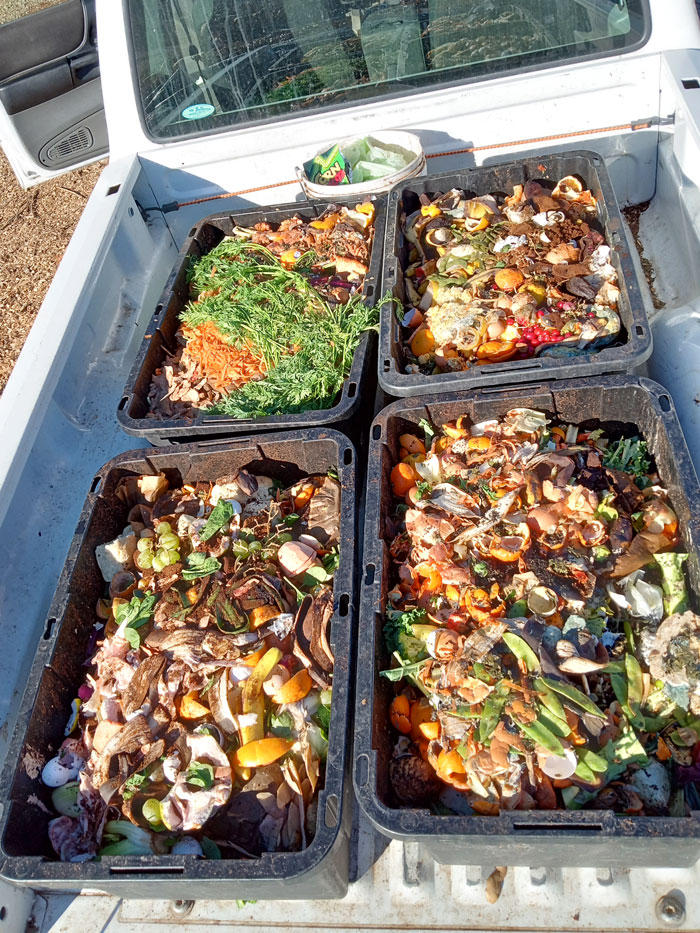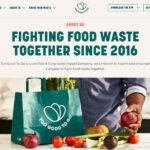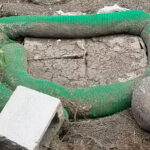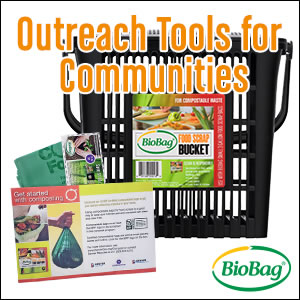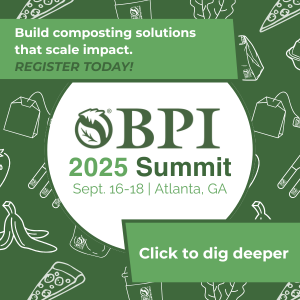Top: Compost Queen began offering commercial collection services in January 2024 using 64-gallon carts and a box truck (in background). Finished compost made at Back Gate Farm in foreground. Photos courtesy Compost Queen PBC
Compost Queen PBC in Ft. Collins, Colorado is the “operational definition” of decentralized food scrap composting infrastructure. Founded in 2018 by Jamie Blanchard-Poling, Compost Queen is a Public Benefit Corporation that collects food scraps from households and commercial accounts and composts them at several locations in Ft. Collins. Finished compost is offered back to the customer and provided to the farms and botanical garden hosting the composting sites. “Residents have the choice of biweekly food scraps collection or signing up to use one of Compost Queen’s drop-off sites,” explains Blanchard-Poling, whose title is Owner/Queen. “The number of residential accounts has grown to 550, which includes about 90 drop-off accounts.” A drop-off subscription is $20/month; biweekly collection is $25/month. Curbside collection is available in Ft. Collins and Timnath; drop-off sites are in Ft. Collins, Windsor and Loveland, all within a 20-mile range of Compost Queen’s composting sites.
Commercial food scrap collection began in January 2024. Several businesses were selected last year to pilot the service, and Compost Queen purchased a box truck last November to transport the 64-gallon carts. “We are collecting back-of-house organics from restaurants, cafeterias and food manufacturers and have 10 accounts, with the goal of doubling that number by the end of 2024,” says Blanchard-Poling. All food scraps are accepted. The company had been taking certified compostable liner bags and some packaging but found that these items were not degrading during composting. “We successfully compost paper towels and napkins and are going to be testing other compostable packaging using the Compost Research and Education Foundation’s Compostable Field Testing Program,” she adds.
Two pickup trucks are used for residential food scraps collection. Compost Queen recently received a grant to purchase a third pickup, a Ford Lightning electric vehicle. The collection crew empties residential containers into bins in the truck bed and follows the company’s “collect and inspect” protocol so that contamination can be spotted and photographed. The household with contamination receives an email with the photo and is reminded of the materials accepted. Compost Queen has a 3-strikes policy (3 “warnings” before having the service canceled) but has never had to enforce it with a residential account.
Compost Queen has three composting sites in Ft. Collins. Two are on family farms, and one is at a botanical garden. The sites have drop-off stations for food scraps. The operation at the botanical garden uses a 3-bin system to compost food scraps and residuals from the garden. Compost Queen held a grand opening in April 2024 at Back Gate Farm, its newest location about a mile from downtown Ft. Collins. “It’s a 5-acre property,” explains Blanchard-Poling. “The back half is a farm; the middle parcel is zoned light industrial, and the front portion is residential and retail. We received a grant from the Colorado Department of Public Health and Environment (CDPHE) to purchase a small GORE® Cover System from Sustainable Generation. The system, with capacity to compost 700 tons/year, enables us to optimize our composting process and control any odors as we are adjacent to a mobile home park to the north of the property.”

Compost Queen received a state grant to purchase a small GORE® Cover System from Sustainable Generation. The system has capacity to compost 700 tons/year,
The three composting sites operate under CDPHE’s revised Conditionally Exempt Small Quantity (CESQ) permit, enabling Compost Queen to have up to 20 cubic yards (cy) of Type 2 feedstocks at any one time — an increase from 5 cy in the previous regulation for a CESQ permit (not in-vessel). Type 2 feedstocks include source separated organics, food scraps, manure, and yard trimmings. “We would like to apply for a Class I permit that would allow us to compost up to 5,000 cy of feedstocks in process at any one time,” notes Blanchard Polling. The company composts about 700 tons/year of organics currently; about 400 tons are food scraps.


